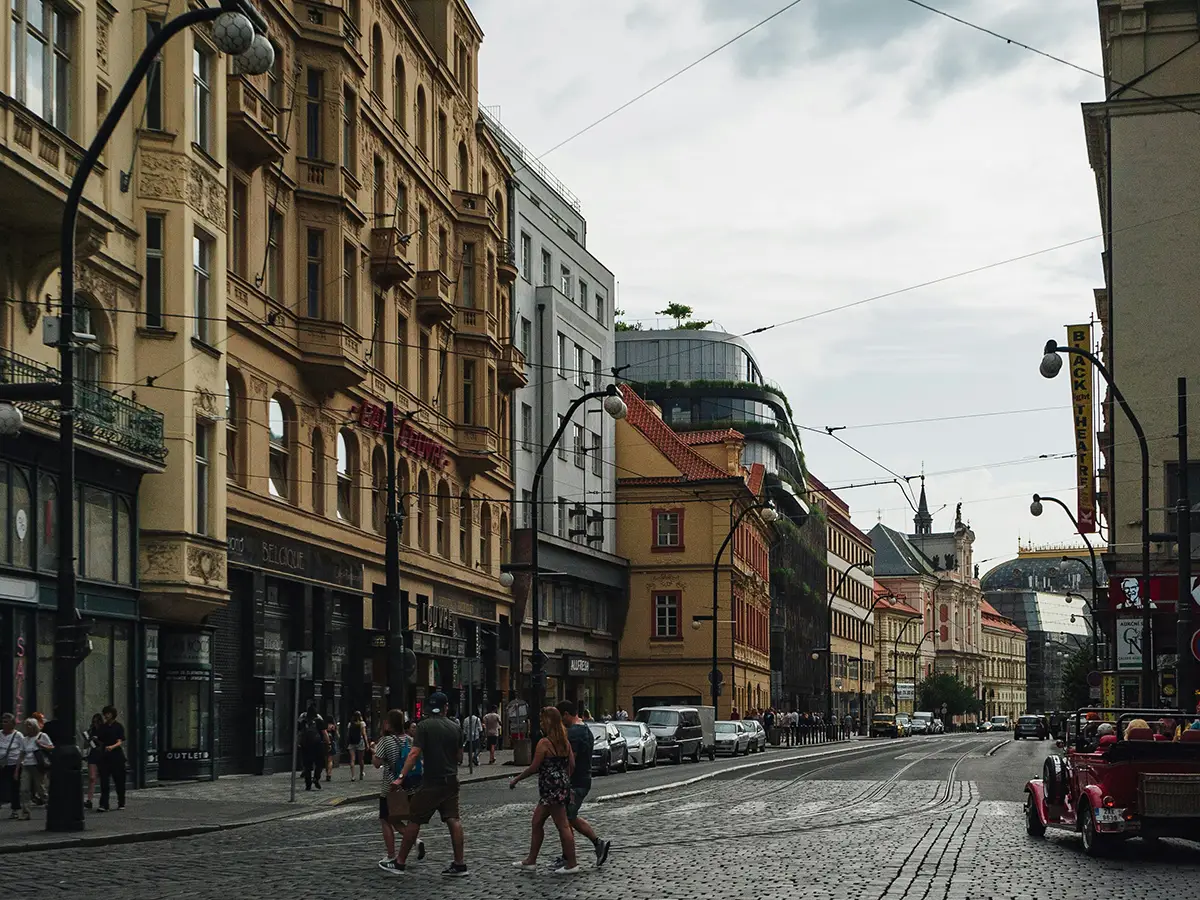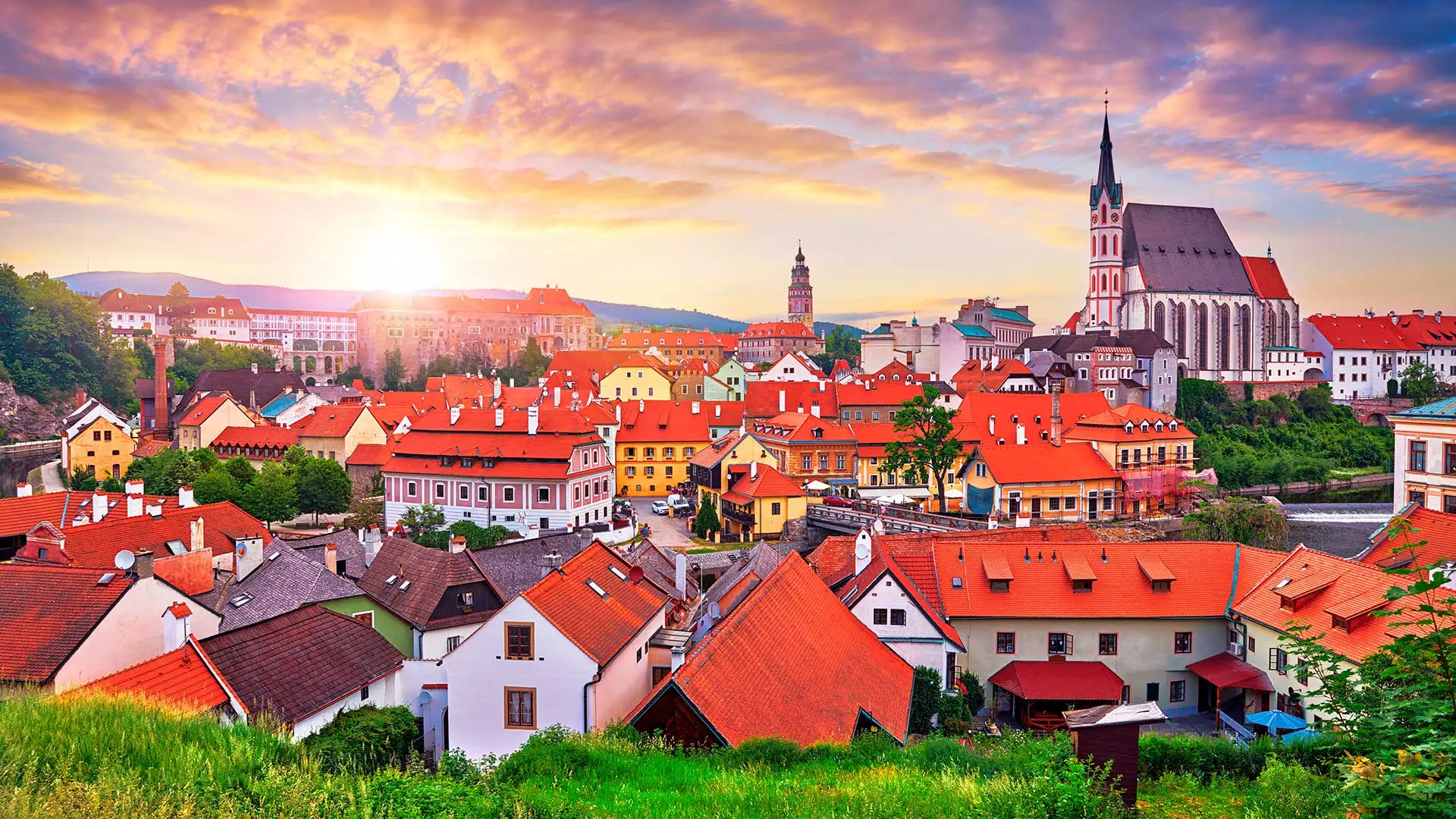Czech Republic remains one of the most attractive countries in Europe for real estate investment. Picturesque cities, stable economy, access to the European market, and a high standard of living make it an ideal place for investments.
In this article, we will discuss where to find the cheapest apartments in the Czech Republic. We will take a closer look at regions with affordable housing and opportunities for foreigners.

How Apartment Prices are Formed in the Czech Republic
Real estate in the country is significantly cheaper than in Western Europe, but prices have been rising in recent years. This is due to high demand, limited construction, and the country’s popularity among investors.
Factors influencing housing prices:
- location (proximity to Prague and major cities increases the price);
- infrastructure (developed regions are more expensive than depressed industrial zones);
- type of housing (old buildings and panel houses are cheaper than new buildings);
- economic situation and demand among foreigners.
The most expensive real estate is in Prague, while the cheapest apartments in the Czech Republic can be found in regions far from business centers.
Regions in the Czech Republic with Affordable Housing
Housing prices in major cities like Prague and Brno can be quite high. If you are looking for affordable real estate options, consider regions where housing remains accessible and the quality of life is at a decent level.
Ustecky Region
The region is considered one of the most affordable in terms of real estate prices. The main cities where you can buy affordable property are Teplice, Chomutov, and Bilina.
Teplice is the most popular choice for relocation among foreigners. The city is known for its thermal springs and good infrastructure. The average price of a one-bedroom apartment here is 41,900 €, which is 7 times cheaper than in Prague.
Chomutov and Bilina are even more affordable locations where you can find housing starting from 30,000 €. These cities maintain an industrial character, but their proximity to the German border makes them convenient for work and business.
Moravian-Silesian Region
Cities in the east, such as Ostrava and Karvina, are characterized by low housing prices. Ostrava is a major industrial center, but its real estate is much cheaper than in the capital. The average cost of an apartment here ranges from 50,000-60,000 €.
Karvina offers even more affordable options, with prices starting from 25,000 € for a resale property. The city is not as developed but attracts those looking for apartments for foreigners with minimal investments.
Pardubice and Kralovehradecky Region
These regions attract those who want to buy an apartment in the Czech Republic for permanent residence but are not willing to spend large sums. In cities like Hradec Kralove, Pardubice, and Trutnov, you can find housing starting from 55,000 €.
Choosing Between New Construction and Resale
In the Czech Republic, there are two main segments of the market – new construction and the secondary market.
New apartments are usually offered with finishing and infrastructure, but their price is higher. In Prague and Brno, apartments in new residential complexes start from 150,000-200,000 €, while in regions, you can find options starting from 80,000 €.
Resale properties are cheaper but require renovation. Panel houses, especially in the Ustecky and Moravian-Silesian regions, can be purchased from 25,000-30,000 €.
The choice depends on the budget and goals – for long-term residence, new construction is preferable, but if affordable housing is needed, the secondary market offers better conditions.
How to Buy an Apartment in the Czech Republic as a Foreigner?
Buying property is an excellent way to invest in Czech real estate, but the process differs for EU citizens and third-country nationals. The former can buy property without restrictions, while the latter will need more documents and time.
What Documents are Needed to Buy an Apartment?
If you decide to buy an apartment for permanent residence, you will need to prepare a standard set of documents. These include:
- passport – the main document confirming the buyer’s identity;
- purchase agreement – signed between the seller and the buyer after agreeing on the terms of the deal;
- income source confirmation – necessary if you plan to arrange a mortgage with a Czech bank;
- registration in the cadastre register – a mandatory procedure after the deal is concluded.
In case of buying property through a mortgage, banks may also request additional documents: income certificate, tax return, and credit history statement.
How Does the Real Estate Purchase Process Work?
The process of buying real estate in the Czech Republic includes several key stages, each of which requires careful attention.
1. Choosing the Property and Checking the Documents
Before buying, it is advisable to study the regions in the Czech Republic with affordable housing and determine which property suits your goals – new construction or resale. At this stage, it is recommended to consult a real estate agent and a lawyer to verify the legality of the transaction.
2. Signing a Preliminary Agreement
After choosing the apartment, a preliminary agreement (Rezervační smlouva) is signed. It specifies the conditions of the deal and the price of the property. Usually, the buyer pays a reservation deposit (about 5-10% of the cost).
3. Mortgage Arrangement (if necessary)
If you are not paying for the property immediately, you can consider investing in Czech real estate through a mortgage. Czech banks provide loans to foreigners but require income confirmation and collateral.
4. Signing the Main Contract and Registration in the Cadastre
After all checks are completed, the main contract (Kupní smlouva) is signed, certified by a notary. Then the transaction is registered in the cadastre register, and the buyer becomes the official owner of the property.
5. Payment and Handover of the Apartment
After the registration is completed, the final settlement takes place, after which the buyer receives ownership rights to the apartment.
Conclusion
If you are looking for where to find the cheapest apartments in the Czech Republic, pay attention to the Ustecky Region, Moravian-Silesian Region, and small towns in the central part of the country.
The most advantageous options are offered in Teplice, Chomutov, Ostrava, and Karvina, where the average housing cost is significantly lower than in Prague. Moreover, buying real estate is available not only to EU citizens but also to foreigners from other countries.

Before making a purchase, it is important to consider the purpose of acquisition: for residence, it is better to choose new construction, but if affordable options are needed, the secondary market offers better conditions.
Investing in Czech real estate is not only an opportunity to live in Europe but also an excellent investment with growth prospects.
 en
en  ru
ru  de
de  ar
ar  es
es  nl
nl  hi
hi  fr
fr  it
it  pt
pt  el
el 









